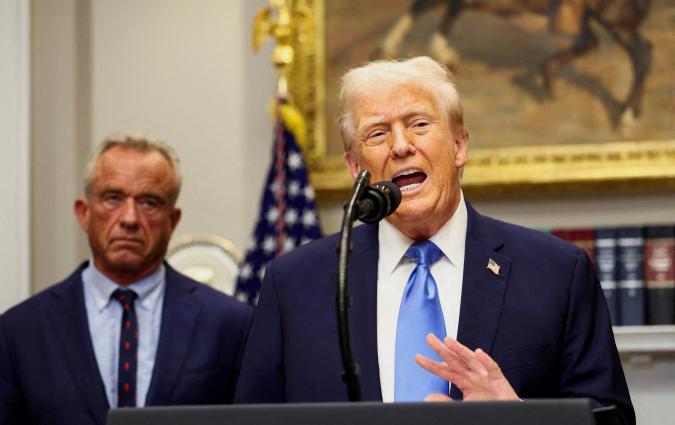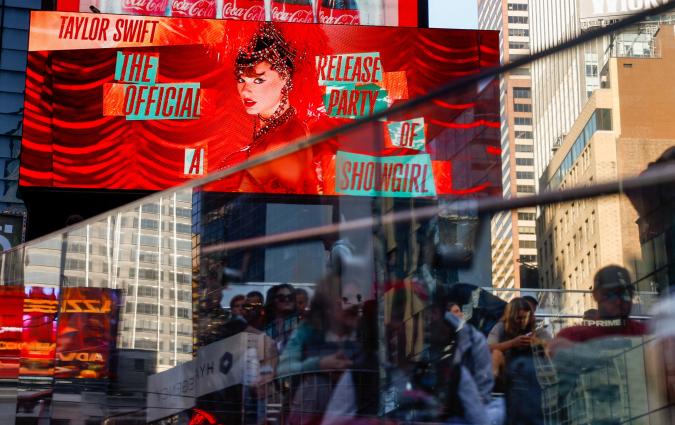As crypto goes mainstream, meet two news sites covering it in the Global South

Satoshi Nakamoto’s original pitch for Bitcoin promised an electronic payment system where any two willing parties could transact directly with each other without the need for a trusted third party. This was the original vision of cryptocurrencies: an efficient financial system without the control of governments and banks.
This vision became particularly compelling in the Global South, where many people with no access to banking services saw crypto as a way to conduct transactions with low or zero fees and without the intermediation of financial institutions.
This framework explains why emerging markets in Africa, South East Asia and Latin America are among the places where cryptocurrencies are most popular. In Latin America, for example, high inflation has nudged millions to dabble in crypto: 51% of consumers have made at least one transaction with cryptocurrencies, according to a survey by Mastercard.
Something similar happens in Africa. According to a policy brief released by the United Nations Conference of Trade and Development, significant proportions of the population in countries such as Kenya, South Africa and Nigeria are using cryptocurrencies. Moreover, The Central African Republic and El Salvador have recently adopted the cryptocurrency Bitcoin as legal tender.
What role should journalists play when covering the volatile world of crypto in the Global South? This is the question at the heart of this article, which includes the views of journalists covering this fast-growing sector in Africa and Latin America.
Covering crypto in Africa
In an environment where cryptocurrencies are more accessible than ever, African media outlets are looking to cut through the noise. One of those outlets is Mariblock, launched by Nigeria-based financial journalist Oluwaseun Adeyanju in 2022.
While working as a freelancer covering crypto in Africa for other outlets including Forbes and Cointelegraph, Adeyanju realised that there was a need for an African-focused media outlet in the space. “Blockchain is well positioned to help play a part in bringing Africa on par with the rest of the world,” he says. “If you want to foster the advancement of any technology, you need correct, equitable and fair information around it.”
Africa has been one of the fastest-growing markets in the world for the sector, with crypto transactions peaking at $20 billion per month in 2021. This is not a new phenomenon. Many African countries have experienced what experts call technological leapfrogging, with the most popular example being the widespread adoption of mobile phones in the past decade.
Adeyanju says Western news outlets are leaving gaps in their coverage of this booming environment. “They are not interested in grassroots stories because it’s not financially rewarding for them to do that,” he says.
For example, earlier this year, various publications were reporting on Bitcoin trading at a premium in Nigerian cryptocurrency exchanges, meaning that the price is higher than the average Bitcoin price. However, Adeyanju points out that this is a misconception on how the exchange rate in Nigeria works, which is why they published a story debunking this misleading narrative.
The outlet, which recently had its first year anniversary, started aggregating news of anything happening in the African blockchain space. Now, it has developed to do original reporting on topics they believe are important to the continent such as Bitcoin, regulation, and crypto scams.
“I see that a lot of the narrative in crypto tends to be around doing moral good for the Global South,” he says. “So it tends to either overstate what is happening here or sometimes understate.”
Some of the stories Mariblock has reported on have attempted to demystify what really is happening in the region.
One of the stories revolves around the Nigerian SEC circular about Binance, labelling the operation, which does not have a local unit in Nigeria, as illegal. As the outlet reported, this mistake seemingly stems from a name mixup with the inactive company Binance Nigeria Limited being targeted for the dealings of the global cryptocurrency exchange Binance. Binance then took advantage of the SEC’s mistake to call out BNL as the scam entity. Mariblock subsequently published an investigation and the SEC reissued their circular.
“While we're disappointed the story hasn’t been picked up by other publications, we are proud that the resulting clarification from the SEC, which the leading industry media houses picked, helped set the record straight,” says Adeyanju.
Covering crypto in Latin America
On the other side of the Atlantic, Criptonoticias was founded in 2015 with a similar goal: to bring a local perspective to the growing interest in crypto in Latin America. “This is one of the regions where Bitcoin and the rest of the cryptocurrencies have had a fertile ground,” says Caracas-based journalist Rafael Gómez Torres, who is the editor-in-chief of the outlet and has more than two decades of reporting experience in Venezuela.
Latin America has historically dealt with financial instability with frequent and brutal bouts of inflation, one of the key drivers for crypto adoption. Two of the main countries embracing crypto in the region have been Argentina and Venezuela, which have struggled with hyperinflation and volatile economies in recent years.
Gómez Torres says that this growth in interest is what drives their editorial standards. “We try to guide people to know how they should handle themselves when they get involved with this type of asset,” he says. The editorial mission of Criptonoticias focuses on explaining crypto, which is often complex, in simple jargon. Their coverage, for example, ranges from the viability of new coins to Bitcoin mining explainers to financial regulators outside of the United States.
“Our coverage starts from the fact that Bitcoin is something real, tangible and really good and better for the world, a technology,” says Héctor Cárdenas, founder and CEO of Criptonoticias. “That said, we look at everything that happens to Bitcoin and affects it and its users, and we view with scepticism anything that takes away from Bitcoin or uses it in ways that go against its nature.”
Investing in crypto is risky. In 2022 the blockchain world experienced a so-called ‘crypto winter.’ Bitcoin lost three-quarters of its value (it has since bounced back). Many allegedly fraudulent crypto exchanges lost people’s assets. The so-called ‘altcoins’, so popular during the pandemic, are now worthless.
Despite these recent controversies, both Adeyanju and Gómez Torres remain optimistic about the future of the industry. “We want to highlight the benefits of this technology,” says Gómez Torres. “It gives us an optimistic sense of what it can mean for many people in Latin America.”
This optimism has translated into politics, with two countries in the world making Bitcoin their legal tender in the past few years. The first one was El Salvador, whose President Nayib Bukele announced it in 2021. Bukele, widely criticised for attacks on journalists and his human rights record, said that adopting Bitcoin would digitise the economy, decrease dependence on the US dollar, lower remittance fees, and drive investment.
However, El Salvador’s crypto promise is yet to pay off. And while Bukele is doubling down on the country’s adoption of Bitcoin with plans for the development of a ‘Bitcoin City,’ the second country that has adopted crypto as legal tender is taking a step back.
The Central African Republic adopted Bitcoin as legal tender in early 2022. A year later, the parliament repealed the legislation as it caused significant regional backlash. With many West-Central African countries still using the CFA Franc, the initial move by the Central African Republic was considered as an affront to the regional economic bloc.
Transparency in reporting
The question of conflict of interest in crypto journalism also looms large as many outlets are financially dependent on crypto.
One of the biggest players in the space is CoinDesk whose profile rose after breaking the news that eventually led to the bankruptcy of cryptocurrency exchange company FTX and fraud charges for its CEO Sam Bankman-Fried.
A few months after FTX’s collapse, CoinDesk’s parent company, venture capital firm Digital Currency Group (DCG), which owns stakes in many crypto operations, was embroiled in questions about the morality of some of its operations in addition to financial troubles. This put the outlet in the uncomfortable position of covering its owner, as well as putting into question its editorial independence.
CoinDesk has not shied away from critically covering DCG and its assets. However, it is important to note that as of 2022, the outlet began rolling out a programme where “certain high-performing employees” receive stock appreciation rights in DCG as part of their compensation.
Not all outlets have been as transparent in their disclosures, however. In the wake of FTX’s collapse and the 2022 crypto winter, Axios revealed that The Block, a news outlet covering crypto, was secretly funded for over a year by Bankman-Fried. While it led to the resignation of The Block’s CEO, the outlet’s editorial leadership say that they were shocked and unaware of the dealings.
Adeyanju, who owns stablecoins in addition to some Bitcoin and Ethereum, says it is important for them to report on the limits and the downside of cryptocurrencies. They limit their coverage of individual coins as they focus on big picture stories. Crucially, they refrain from telling their audience if they should invest or not and in what. However, neither their author’s pages nor individual pieces disclose whether Mariblock journalists own cryptocurrencies.
“We try to maintain healthy scepticism by asking common sense questions like ‘Do you even need blockchain for this? Can it scale? Are there legacy solutions doing this pretty well? Who is behind this? Where's the money? Does it make sense? Is there sufficient information about the what, why and how? Why are you recreating the wheel?” he says.
As the outlet is so new, Adeyanju says, they are still figuring out their business model with potential revenue streams being explored ranging from subscription services to advertisement to sponsored content. As they are not yet profitable, the small editorial team that comprises Mariblock is staying afloat by bootstrapping.
Criptonoticias’ business model, on the other hand, relies mostly on advertising sales. Their newsroom consists of more than 30 employees located throughout the region and in Spain.
Gómez Torres, who no longer owns any cryptocurrencies, says that any new technology will have bad actors and that the focus of his outlet is not to tell people what to invest in, but to educate audiences on what crypto is and its possibilities. “We try to dispel some of the fears,” he says. “In that sense, the mission of Criptonoticias is making the public understand how this new technology works.”
What’s different
There are inherent differences when it comes to covering crypto for an audience in the Global South versus the Global North, stresses Gómez Torres. Unlike CoinDesk or Decrypt, his publication acknowledges that the financial reality of most people in Latin America is inherently different than for those living in Europe or North America.
“Here using Bitcoin or cryptocurrencies is more associated with survival while in Europe the use of cryptocurrencies is associated with getting money and getting rich,” he says. Audiences in the Global North, he explains, are more willing to gamble with their money in cryptocurrencies. Audiences in Latin America have less resources to gamble with.
Audiences in Africa are also different. Usage in the continent is dominated by small retail payments and peer-to-peer transactions. This suggests that usage is driven by those who are financially marginalised rather than by those that are already well-off.
This is what many Western publications get wrong about crypto in Africa, Adeyanju says: that it is about making quick bucks rather than financial independence. “As a journalist, you owe it to your audience to cut through the noise and see what this thing is really about,” he says. “That is really what we dedicate ourselves to. And we are starting to see people who are looking up to us for information about Africa.”
The author of this piece does not own any cryptocurrencies and has never owned in the past.






